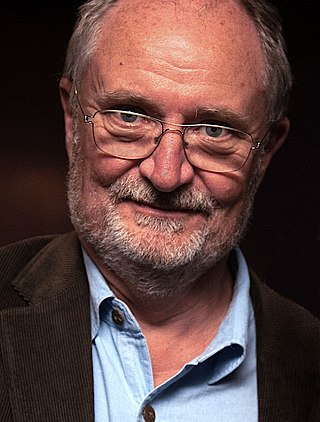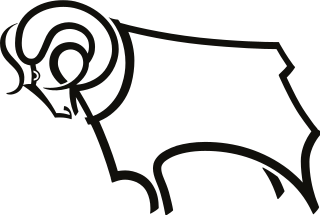
Brian Howard Clough was an English football player and manager, primarily known for his successes as a manager with Derby County and Nottingham Forest. He is one of four managers to have won the English league with two different clubs. He is widely considered to be one of the greatest managers of all time. Charismatic, outspoken and often controversial, his achievements with Derby and Forest, two clubs with little prior history of success, are rated among the greatest in football history. His teams were also noted for playing attractive football and for their good sportsmanship. Despite applying several times and being a popular choice for the job, he was never appointed England manager and has been dubbed the "greatest manager England never had".

James Broadbent is an English actor. A graduate of the London Academy of Music and Dramatic Art in 1972, he came to prominence as a character actor for his many roles in film and television. He's received various accolades including an Academy Award, two BAFTA Awards, and two Golden Globe Awards as well as nominations for two Primetime Emmy Awards and a Grammy Award.

Michael John Giles is an Irish former association football player and manager best remembered for his time as a midfielder with Leeds United in the 1960s and 1970s. After retiring from management in 1985, Giles served as the senior analyst on RTÉ Sport's coverage of association football from 1986 until 2016. The FAI voted Giles as the greatest Irish player of the last 50 years at the UEFA Jubilee Awards in 2004.

Norman Hunter was an English international footballer who played for Leeds United, Bristol City, Barnsley and England. He also managed Barnsley and Rotherham United. A tough tackling centre-back and defensive midfielder, he won two League Championship medals and one FA Cup-winners medal with Leeds, for whom he played 726 games in total, scoring 21 goals.

David Peace is an English writer. Best known for his UK-set novels Red Riding Quartet (1999–2002), GB84 (2004), The Damned Utd (2006), and Red or Dead (2013), Peace was named one of the Best of Young British Novelists by Granta in their 2003 list. His books often deal with themes of mental breakdown or derangement in the face of extreme circumstances. In an interview with David Mitchell he stated: "I was drawn to writing about individuals and societies in moments that are often extreme, and often at times of defeat, be they personal or broader, or both. I believe that in such moments, during such times, in how we react and how we live, we learn who we truly are, for better or worse."

Nigel Howard Clough is an English professional football manager and former player who is currently the manager of Mansfield Town. Playing predominantly as a forward, but later in his career used as a midfielder, Clough was capped by England 14 times in the early 1990s.

David Craig Mackay was a Scottish football player and manager. Mackay was best known for a highly successful playing career with Heart of Midlothian, the Double-winning Tottenham Hotspur side of 1961, and winning the league with Derby County as a manager. He also represented Scotland 22 times, and was selected for their 1958 FIFA World Cup squad. Mackay tied with Tony Book of Manchester City for the Football Writers' Association's Footballer of the Year award in 1969 and was later listed by the Football League in their "100 Legends", as well as being an inaugural inductee to both the English and Scottish Football Halls of Fame. He was described, by Tottenham Hotspur, as one of their greatest players and was known as 'the heartbeat' of their most successful ever team.

John Prescott McGovern is a Scottish former association football midfielder and manager. McGovern is most famous for captaining the Nottingham Forest side that won the European Cup twice under the management of Brian Clough, whom he played under at four clubs, and Peter Taylor.
The 1974–75 season was the 95th season of competitive football in England.
Michael William Eric Tonge is an English football coach and former player. A midfielder, he scored 39 goals in 544 league and cup appearances in a 19-year career in the English Football League.
The 1973–74 season was the 94th season of competitive football in England.

Derby County Football Club is a professional association football club in Derby, England. The team competes in League One, the third level of the English football league system.

Andrew Lancel is an English television and theatre actor, producer and director. He is best known for his appearance as Dr. Andrew Collin in Cardiac Arrest, his role as DI Neil Manson in The Bill and Frank Foster in the long-running ITV soap opera Coronation Street, as well as his acclaimed portrayal of Brian Epstein in the stage play Epstein – The Man Who Made The Beatles.
The history of Leeds United Football Club, a professional association football club based in the city of Leeds, West Yorkshire, England, dates back to 1919, when the club was established following the demise of Leeds City F.C.

Thomas George Hooper is a British-Australian film director.

The Damned United is a 2009 sports drama film directed by Tom Hooper and adapted by Peter Morgan from David Peace's bestselling 2006 novel The Damned Utd – a largely fictional book based on the author's interpretation of Brian Clough's ill-fated tenure as football manager of Leeds United in 1974.
The 2008–09 season was Derby County's 110th season in the Football League. It is their 41st season in the second division of English football and their first season in the second tier since the 2006–07 season. They were relegated from the FA Premier League in the 2007–08 season.
The 1974–75 season saw Leeds United compete in the Football League First Division. As reigning English champions, they also competed in the European Cup.
James Gordon was a Scottish football player and coach. A native of Fauldhouse, West Lothian, Gordon played for Newcastle United and Middlesbrough as a wing-half. He later worked as a coach under Brian Clough and Peter Taylor at Derby County and Nottingham Forest, and was assistant manager to Clough during his 44-day reign at Leeds United. In honour of his contribution, Gordon was allowed to lead out the Forest players at Wembley for the 1980 Football League Cup Final.
Sam Longson was a British businessman and chairman of Derby County F.C. Longson founded a road haulage business in Chapel-en-le-Frith that became the largest in Derbyshire. He sold the company by 1967 and also built and sold a hire purchase business. Longson joined the board of directors of Derby County in 1952 and became the chairman in December 1965. He was instrumental in the appointment of Brian Clough as Derby County manager in May 1967, under whose leadership the club won the league title in May 1972. Clough helped win support to Longson as Chairman after he briefly lost the position. Longson's relationship with Clough broke down in 1973 and he accepted Clough's resignation after a disagreement over the manager's media appearances.













